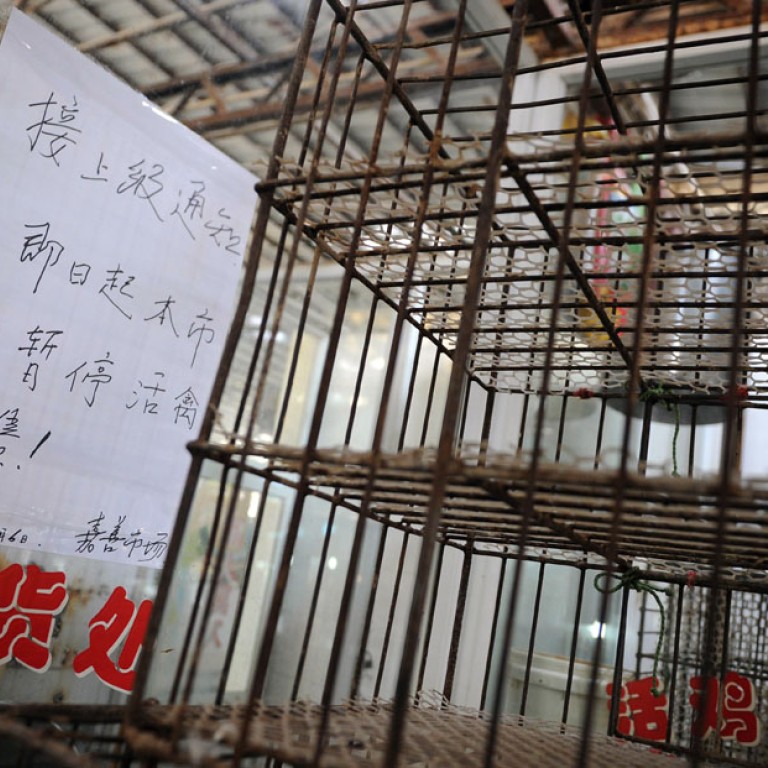
Poultry market closures best way to slow spread of H7N9, study finds
A group of Hong Kong and mainland researchers have concluded that closing live poultry markets all but eliminates the risk of human infection from H7N9 and is the most effective measure to control the deadly bird flu.
A group of Hong Kong and mainland researchers have concluded that closing live poultry markets all but eliminates the risk of human infection from H7N9 and is the most effective measure to control the deadly bird flu.
The research, which was published in medical journal yesterday, studied market closures in Hangzhou , Huzhou , Nanjing , and Shanghai. The findings ruled out other factors like seasonal patterns and confirmed that closing the markets was the main reason the epidemic subsided.
"The most important thing now is how we prevent a large-scale outbreak from happening again," said Gabriel Leung, of the University of Hong Kong's School of Public Health, who took part in the study. "Now, we have identified a method that lowers the risk of human infections by 97 to 99 per cent."
University of Hong Kong researchers, who collaborated with the Chinese Centre for Disease Control and Prevention, said the measure should be considered if the infection remerged in the colder months.
Since February, 136 human infections have been confirmed on the mainland. Of these, 45 have died; four are in hospital.
